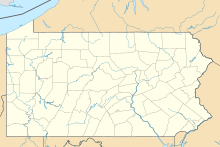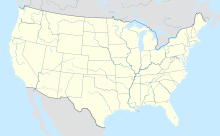Philadelphia Museum
|
|
|
| Established | February 1876 |
|---|---|
| Location | 2600 Benjamin Franklin Parkway, Philadelphia |
| Coordinates | 39°57′58″N 75°10′52″W / 39.966°N 75.181°WCoordinates: 39°57′58″N 75°10′52″W / 39.966°N 75.181°W |
| Type | Art museum |
| Collection size | 240,000 |
| Visitors | 793,000 (2017) |
| Director | Timothy Rub |
| President | Gail Harrity |
| Website | www.philamuseum.org |
The Philadelphia Museum of Art is an art museum originally chartered in 1876 for the Centennial Exposition in Philadelphia. The main museum building was completed in 1928 on Fairmount, a hill located at the northwest end of the Benjamin Franklin Parkway at Eakins Oval. The museum administers collections containing over 240,000 objects including major holdings of European, American and Asian origin. The various classes of artwork include sculpture, paintings, prints, drawings, photographs, armor, and decorative arts.
The Philadelphia Museum of Art administers several annexes including the Rodin Museum, also located on the Benjamin Franklin Parkway, and the Ruth and Raymond G. Perelman Building, which is located across the street just north of the main building. The Perelman Building, which opened in 2007, houses more than 150,000 prints, drawings and photographs, along with 30,000 costume and textile pieces, and over 1,000 modern and contemporary design objects including furniture, ceramics and glasswork. The museum also administers the historic colonial-era houses of Mount Pleasant and Cedar Grove, both located in Fairmount Park. The main museum building and its annexes are owned by the City of Philadelphia and administered by a registered nonprofit corporation.
Several special exhibitions are held in the museum every year, including touring exhibitions arranged with other museums in the United States and abroad. The attendance figure for the museum was 793,000 in 2017, which ranks it among the top one hundred most-visited art museums in the world. The museum is also one of the largest art museums in the world based on gallery space.
Philadelphia celebrated the 100th anniversary of the Declaration of Independence with the 1876 Centennial Exposition, America's first World's Fair. Its art building, Memorial Hall, was intended to outlast the Exhibition and house a permanent museum. Following the example of London's South Kensington Museum, the new museum was to focus on applied art and science, and provide a school to train craftsmen in drawing, painting, modeling, and designing.
...
Wikipedia





